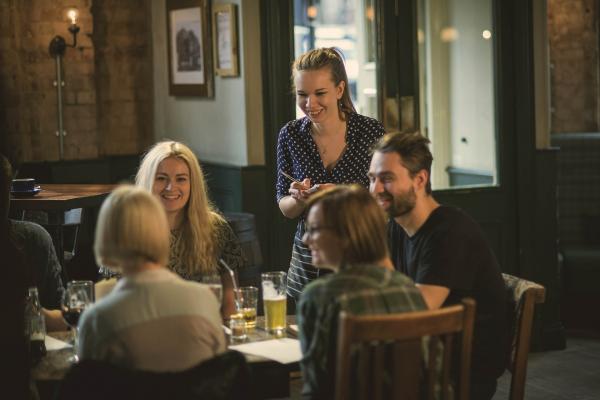10 steps to become a multi-site operator
Do you want more out of your pub business? Once you’ve proved that you can run a successful pub, what next? For many licensees the next step is to find another pub and become a multi-site pub operator! It’s a well-trodden path with people such as award winning chef Tom Kerridge and licensee of three pubs, inspiring others to do the same.
All it takes is 10 simple steps.
Become A Multi-Site Pub Operator In 10 Steps
1. Have a successful pub that you want to replicate
This is crucial. Expanding onto other sites to try out new concepts such as a gastro pub, sports pub or wet pub rarely works because you are diversifying your interests too far. You need to be able to demonstrate that you can operate a pub successfully and have a brand that has the potential to be taken to other sites. Multi-site pubs do not have to be completely identical, just similar. Tom Kerridge, for example, started with a pub restaurant, and then created a chain by diversifying to offer a slightly different food concept at other pubs within the same town.
2. Have a great staff team to support you
Running a pub is more than just serving behind a bar. A successful pub operator must be good at recruiting, inspiring and managing staff. Expanding onto another site means leaving your existing pub in the care of other people on a day-to-day basis. You need to be able to rely on those people to run the business in your style and brand, and to maintain its profitability. Existing standards must be maintained. Make sure that you have the right staff in place ready to support you as you expand the business.
Try delegating to see how your staff can cope without you. Take a holiday and then assess how your manager has coped without you! Find out whether the customers were happy and if other staff members were happy dealing with the management. Ask yourself if standards were maintained during that period, and whether any problems that occurred were dealt with satisfactorily.
3. Have the necessary capital for investment ready
It will cost money to take on new pubs. Just as when you took on your first pub, you will need money to cover entry costs like working capital, fixtures & fittings, deposits, legal costs etc. It is important to be realistic and identify exactly how much money you have available for investment. If more funds are needed, exactly where those funds will be sourced? Taking money from the day-to-day profits of one pub to fund a new one is an unwise move as it can threaten the profitability of your existing pub. Make sure that the investment funds are available before you start actively looking for new sites.
4. Go on a multi-site operator course
Attending a multi-site operator’s course will be extremely useful as it highlights everything you need to know about running a business across several sites and developing a suitable business ethos. These courses give you time to assess whether you are personally ready to take this step in your company’s development, or whether you need additional training of some kind. A multi-site operator’s course such as that run by Greene King course is very comprehensive. It looks at issues like managing risk, business planning, systems and controls, creating a business infrastructure, accounting and staffing, the lessons that can be learned from existing multi-site operators – as well as highlighting exactly what makes a successful multi-site business.
Taking the time to attend a multi-site operator’s course is essential preparation. You are investing in yourself and the future of your business, so it makes sense to take advantage of every training opportunity. Running a multi-site business involves very specific skills and know how – obtaining these skills will make it much easier to succeed.
5. Choose locations wisely
Look for new sites that are within easy reach of your current pub. Don’t try and move too far outside your existing area. Bear in mind that you will need to travel regularly to oversee the development of the new pubs and this will take time out of your working day. Staying within manageable geographical area, and where there is a similar customer base will make it easier to develop a multi-site business.
Choose the pubs carefully. Make sure that they are exactly what you want, will fit the style of trading with which you are familiar and will have enough profits to pay a manager and do not drain profits from your existing business.
6. Speak to your BDM about becoming a multi-site operator
Discussing expansion options with your BDM will prove extremely helpful. Your BDM will be fully aware of your success in your current pub, and can make recommendations as to how you can develop your concept elsewhere. They can make suggestions about staffing, procedures, operational issues and costs. Most importantly, they will be able to let you know about suitable pubs in your area which are either immediately available, or may be available soon.
7. Prepare your current pub and staff for change
Talk to you staff and let them know what you are planning to do. They need to know and be prepared for future changes. Identify any training needs, and make sure that they have everything they need to run the pub in your absence. Creating clear procedural documentation and manuals will ensure that no mistakes are made, standards are maintained and that they will know immediately what to do in the event of an emergency.
8. Step back from day to day operations and focus on strategy
By scaling back your involvement in day-to-day operations, it will give your staff the opportunity to adjust to the new situation. You can see how they are coping, and it gives you time to focus on business development. As the owner of a multi-site business, focusing on strategy and development as opposed to day-to-day operations is essential.
9. Recruitment
Multi-site businesses need good staff. You will need to recruit pub managers to oversee the day-to-day operation at each site. Where possible, promoting from within is best. It is a lot easier to recruit junior staff to do the bar work and food offer, than recruiting senior supervisory staff who may not share the same business ethos as yourself. Promoting existing staff encourages them to stay and grow within your business. Getting them involved in a new project can offer new challenges and future prospects that they may be seeking in their own lives. Making sure you have the right staff in the right place is crucial.
10. Build a brand
Be consistent in your business aims and practices. Creating a brand for your multi-site business is essential. It is not just a matter of choosing a company name, but making sure that the brand is totally consistent across all venues. Everyone in the business needs to know exactly what it stands for such as perfect customer service, a food offer, specialisation in types of drinks such as cider, gins or whisky.
Are you ready to take the next step?
Whether you’re already a Greene King Pub Partner, or have a pub with another Pub Company, the next step is to talk to your BDM. Then book yourself on a Multi-Site Operator course, and start contacting breweries and PubCos in your area that may have the right opportunity for you.
You don’t have to be a Greene King Pub Partner to attend our award winning training course – click here for more details.
CALL US TODAY TO FIND OUT MORE ABOUT THE BENEFITS OF ADDING TO YOUR PUB PORTFOLIO - 01284 714 497




